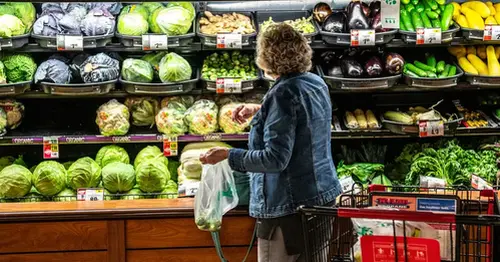
What the midterm election results mean for inflation, the economy
With nearly one-third of midterm election voters indicating inflation was their top campaign concern this year, attention now turns to what the new political alignment in Washington will mean for tackling the issue.
But with multiple key races still up for grabs Wednesday, it is too soon to say exactly how federal lawmakers will address the rampant price increases.
U.S. Senate races in Arizona, Georgia and Nevada remained undecided Wednesday afternoon — while the fate of the House, even with Republicans in the lead, was also still unknown.
If they gain full control of Congress, Republicans have pledged to roll back the Biden administration’s spending efforts, which opponents of President Joe Biden blame for inflation.
Republicans have also promoted their desire to increase oil and gas production and approve energy infrastructure projects, though the Biden administration has already taken steps to lower gasoline prices through increased oil production and, through the Inflation Reduction Act signed into law in August, has launched efforts to build out a nationwide electric-vehicle charging network, among other infrastructure projects already underway.
Democrats, meanwhile, have been largely content to put the responsibility for controlling inflation on the shoulders of the Federal Reserve, which has raised its key federal funds rate six times this year to a level not seen in more than a decade.
How the economy and inflation are affecting midterm election results
Nov. 9, 202203:41Who's responsible for inflation?
Inflation remains largely a consumer-driven phenomenon because it is propelled in large part by household spending. Many corporations have pulled in record profits as a result.
But so far, most consumers have been willing to withstand higher prices, thanks to a variety of factors, including pandemic savings, record-low unemployment and increasingly high credit card borrowing.
Wall Street analysts have laid out various scenarios depending on which party ultimately takes control of Congress, but have zeroed in on what the most likely outcome — a narrow Republican majority in the House and a Senate retained by Democrats — would mean for Washington's impact on the economy.
"In the event of recession, divided governments generally deliver only limited and late fiscal support," Morgan Stanley analysts wrote in a note to clients.
Much of the spending laid out in the Biden administration's Inflation Reduction Act has already been distributed, the analysts said, noting that, in any case, congressional legislation would be subject to a veto by Biden.
“Investors should treat the provisions of the IRA (i.e., clean energy subsidies, prescription drug measures) as likely to endure and current allocations to be distributed,” they wrote.
Instead, the greatest threat to the economy would be Republican promises to reduce spending by refusing to raise the debt ceiling, which will be top of mind for many in early 2023.
Source: https://www.nbcnews.com/business/economy/midterm-election-inflation-economy-what-it-means-rcna56473







